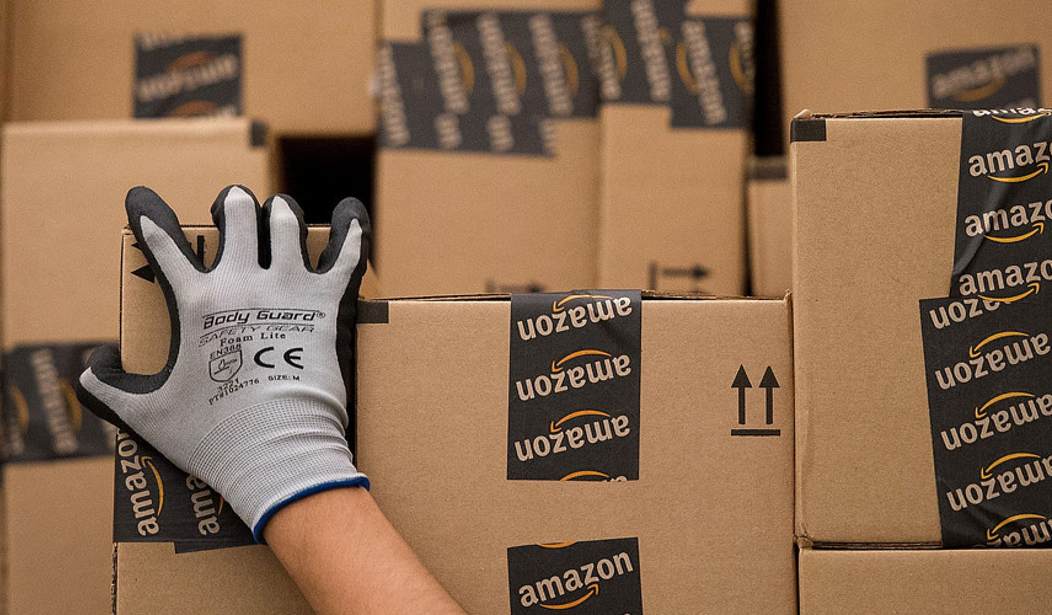You all know how I feel about Amazon and its march toward monopoly. Further case in point:
Barnes & Noble is in trouble…. The company’s leaders claim that they have a turnaround plan, based on smaller, more appealing stores focused on books, and I hope the plan works. It’s depressing to imagine that more than 600 Barnes & Noble stores might simply disappear — as already happened with Borders, in 2011. But the death of Barnes & Noble is now plausible.
At first glance, this seems like a classic story of business disruption. Barnes & Noble and Borders were once so imposing that they served as the model for the evil corporation trying to crush independent bookstores in the 1998 movie “You’ve Got Mail.” Then the world changed. The old leaders couldn’t keep up. Such is capitalism. Except that’s not anywhere near the full story.
Every time I bring this up, I get an avalanche of buggy-whipism, but I stand by my sentiments.
The full story revolves around government policy — in particular, Washington’s leniency, under both parties, toward technology giants that have come to resemble monopolies. These giants are popular, because they provide good products and service. But they have also become mighty enough to vanquish their competitors and create problems for society.
For most of American history, the government viewed giant corporations of any kind as inherently problematic. Their size gave them too much power — to eliminate competition, raise prices, hold down wages and influence politics. So the government passed laws to restrain businesses and occasionally broke up the largest, like Standard Oil and AT&T.
In the 1970s, however, a new idea took hold: Size was not a problem so long as prices remained low. Bigness could even be good, because it promoted efficiency and thus lower prices.
As a result of that mind-set, we saw the corporate takeover mania that ran throughout the ’80s and into the ’90s. To take just one example that hit me personally: Time Inc., my employer when I was at Time magazine, first merged with Warner Communications (synergy!) and then Time-Warner merged with AOL (stop laughing). Later, Time Inc. was spun off and acquired by a publishing company called Meredith, which now has announced that Time magazine and other famous titles it acquired are for sale. Fortunes were made via these mergers — by the execs who engineered them. Meanwhile, hundreds of people lost their jobs. But hey — efficiency!
But, as I keep pointing out, lower consumer prices and corporate “efficiency” (something only Wall Street stock manipulators actually care about) are not the most desirable state of economic affairs. For example, I live at the junction of three states, and gasoline prices vary significantly depending on the taxes added. I could drive over one or two state lines and get a lower price than I do at the gas station half a mile down the road, but I don’t — because I want the gas station down the road to stay down the road and I’m willing to pay what they ask in order to keep them in business. As David Leonhardt argues in the New York Times piece linked above:
One, prices are not a broad enough measure of well-being. Wages, innovation and political power matter as well. If prices stay low but wages don’t grow — which is, roughly, what’s happened in recent decades — consumers aren’t better off. Two, regulators have focused on short-term prices, sometimes ignoring what can happen after a company drives out its rivals.
The book business is looking like a case study. Amazon is taking over, yet has never run into antitrust scrutiny. It has reduced prices, after all. It sells many e-books for $9.99 and hardcover best sellers at a big discount. So what’s the problem?
Plenty. Amazon has been happy to lose money on books to build a loyal customer base, to which it can then sell everything else. “Amazon isn’t primarily concerned about books these days,” Oren Teicher, who runs an association of independent bookstores, told me. “They are far more focused on getting consumers into their ecosystem so they can sell them every other product under the sun.”
Indeed. That may be a good business strategy but it’s bad economic policy and even worse public policy.









Join the conversation as a VIP Member